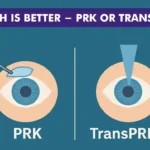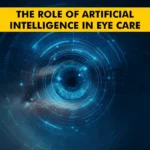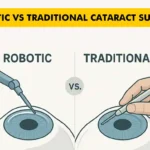The coffee you drink in the morning might be more than just wake you up. It may protect your eyes from Cataract as well. But before talking about how coffee can help, let’s first understand what cataract is. Our eyes have a clear, crystalline lens which works to focus on things at varying distances. Due to various reasons, this lens becomes stiff and hardens to some extent, losing its ability to focus and creating sight issues without its youthful adaptability.
With these changes occurring in the natural lens with passing time, it can possibly lead to cataracts, which is clouding of the lens inside the eye causing loss of its power to focus light properly and therefore leading to loss of vision.Why is this is a big issue? Well, cataract development is one of the major causes of visual impairment and eventual blindness, if untreated.
While cataract surgery has the potential of treating blindness due to this disease, the problem is so huge that it is difficult to eliminate it to the desired level, even by 2020. For example, in India, the number of people with cataract-related visual impairment and blindness is projected to increase from 7.75 million noted in 2001 to 8.25 million in 2020 because of the increase in the population in general, as well in the population of people over 50 years of age.The study shows that caffeine may be effective in protecting the lens against damage that could lead to the formation of cataracts. The components named as the alkaloids which are present in tea and coffee have an anti-cataract effect.
Tests were conducted on mice where they showed reduced formation of cataracts when treated with eye drops laced with caffeine. Humans would have to consume over 6 cups/more than 600mg daily to equal the cataract stopping properties the rats experienced. Further testing will be required and work will be needed to develop caffeine eye drops suitable for the human eye.Once a cataract has advanced, surgical treatment is the only answer for its removal.
There are two types of surgeries on the basis of their application and features:
1. Phacoemulsification:
This is the most common form of cataract removal technique. It is an approach to cataract surgery through a small incision with the purpose of reducing surgical invasiveness. It involves the use of a high-frequency ultrasound device that breaks up the cloudy lens into small pieces, which are then gently removed from the eye with suction. The main advantages of phacoemulsification are that it has made cataract surgery a stitchless, bloodless and painless procedure and has led to a decrease in postoperative problems. It provides quicker postoperative recovery with better visual outcome.
2. Robotic Laser Cataract Surgery:
The latest technology in the field of cataract removal is Robotic Laser technology or Blade free cataract surgery which is a leap ahead of the traditional Phacoemulsification cataract surgery. It allows for the creation of corneal incisions and capsulorrhexis with computer guided laser controlled precision. The laser also fragments the cataract into tiny pieces which can then be safely removed by the surgeon.
The critical high resolution eye image mapping and measurements that are used to plan and perform the surgery to exact specifications are not attainable with traditional surgery. With the use of femtosecond laser, each aspect of this procedure is automated and monitored by the computer leading to safer, quicker surgery and accurate results each time.
Article: Caffeine – A Possible Anti-Cataract Element? – Centre for Sight
Author: Dr Rashid | Feb 24 2016 | UPDATED 02:00 IST
*The views expressed here are solely those of the author in his private capacity and do not in any way represent the views of Centre for Sight.





